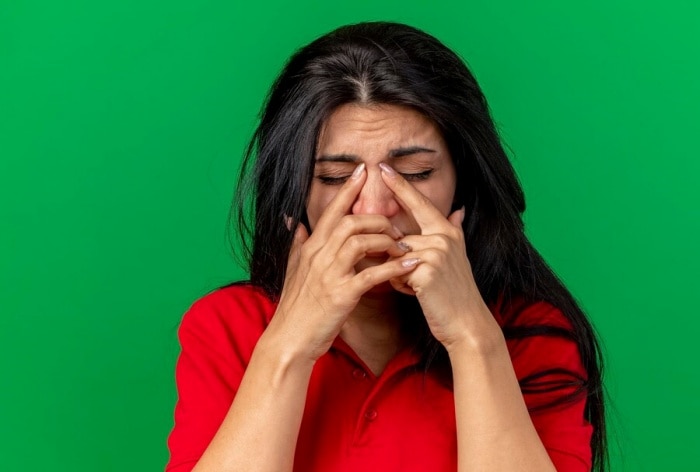Sinus problems tend to aggravate during harsh winters and can be very discomforting. Here are few ways to manage it to get relief in chilly season.
Sinus in winter: Stuffy nose or sinus infection? Head congestion, cold, cough are common winter bigs that can make one really miserable. Winter season has its own set of entailments and woes that often affect health. Asthma, bronchitis, joint pain, hypertension, diabetes etc tend to exacerbate in the winter season. Sinus is also one of it. A drop in temperature affects ther constriction of vessels that puts pressure on other organs leading to an increase in Blood pressie affecting other parts as well. For sinus, the dry weather is the main reason behind the discomfort.
SINUS CAUSES: 5 REASONS WHY SINUS IS AGGRAVATED IN WINTERS?
- Dry Air: This is one of the main reasons that may trigger the nasal problem. The cold, dry air during winter can cause the nasal passages to become dry and irritated, leading to sinus problems
- Indoor Allergens: Spending more time indoors during winter exposes you to potential indoor allergens like dust mites, pet dander, and mold, which can trigger sinus symptoms.
- Viral Infections: Winter is a prime time for viral infections like the common cold and flu, which can lead to sinusitis. To reduce the risk of catching these infections, practice proper hand hygiene by washing your hands regularly with soap and water. Avoid close contact with sick individuals and consider getting a flu vaccine to protect yourself.
- Temperature Changes: Frequent exposure to extreme temperature changes, such as going from the cold outdoors to heated indoor spaces, can irritate the nasal passages and trigger sinus problems. Dress appropriately for the weather and try to minimise sudden temperature transitions by keeping your home at a comfortable temperature.
- Poor Immune Function: Weakened immune function can make you more susceptible to sinus infections. Take steps to support your immune system by adopting a healthy lifestyle. This includes eating a balanced diet rich in fruits, vegetables, and immune-boosting foods, getting regular exercise, managing stress levels, and getting enough sleep.
If you already have sinus issues, additional measures to relieve symptoms and prevent complications may include using saline nasal rinses or sprays to keep your nasal passages clear, avoiding irritants like cigarette smoke, and seeking medical advice if symptoms persist or worsen.
SINUS TREATMENT: 5 PREVENTION TIPS IN WINTERS
- Steam Inhalation: Inhaling steam can help soothe and moisturise the nasal passages, providing relief from congestion and promoting sinus drainage. You can use a humidifier, take a hot shower, or create a steam tent by leaning over a bowl of hot water and covering your head with a towel. Adding a few drops of eucalyptus or peppermint essential oil to the water can provide further relief.
- Hygiene: Regularly clean and dust your living space, vacuum carpets and upholstery, and keep your home well-ventilated. Consider using allergen-proof covers for bedding and washing them frequently.
- Warm Compresses: Applying warm compresses to your face can help alleviate sinus pain and pressure. Soak a clean washcloth in warm water and place it over your nose and cheeks for a few minutes. Repeat this several times a day to promote sinus drainage and relieve discomfort.
- Nasal Irrigation: Besides saline rinses, there are other nasal irrigation devices available, such as neti pots or squeeze bottles, which can help flush out mucus and allergens from the sinuses. Use sterile saline solution or a solution made with distilled, boiled, or filtered water to rinse your nasal passages. Follow the instructions provided with the irrigation device for proper usage.
- Rest and Elevate: Getting adequate rest and elevating your head while sleeping can assist with sinus drainage and alleviate congestion. Use an extra pillow or prop up the head of your bed to promote better drainage.
- Warm Fluids and Hydration: Drinking warm fluids like herbal tea, clear broths, or warm water with lemon can help thin mucus and promote sinus drainage. Staying hydrated throughout the day also helps keep the nasal passages moist and reduces congestion.
Incase sinus symptoms persist, worsen, or are accompanied by severe pain, fever, or other concerning symptoms, it’s important to consult with a healthcare professional for a proper evaluation and guidance on appropriate treatment options.
–>
